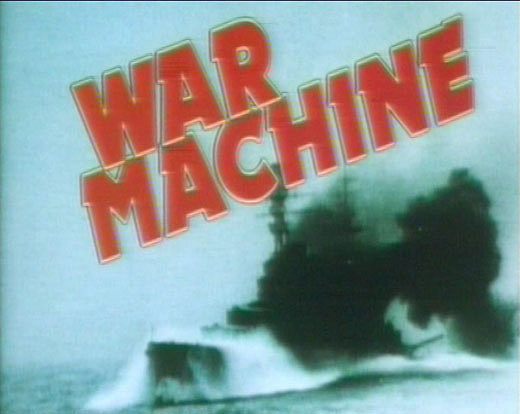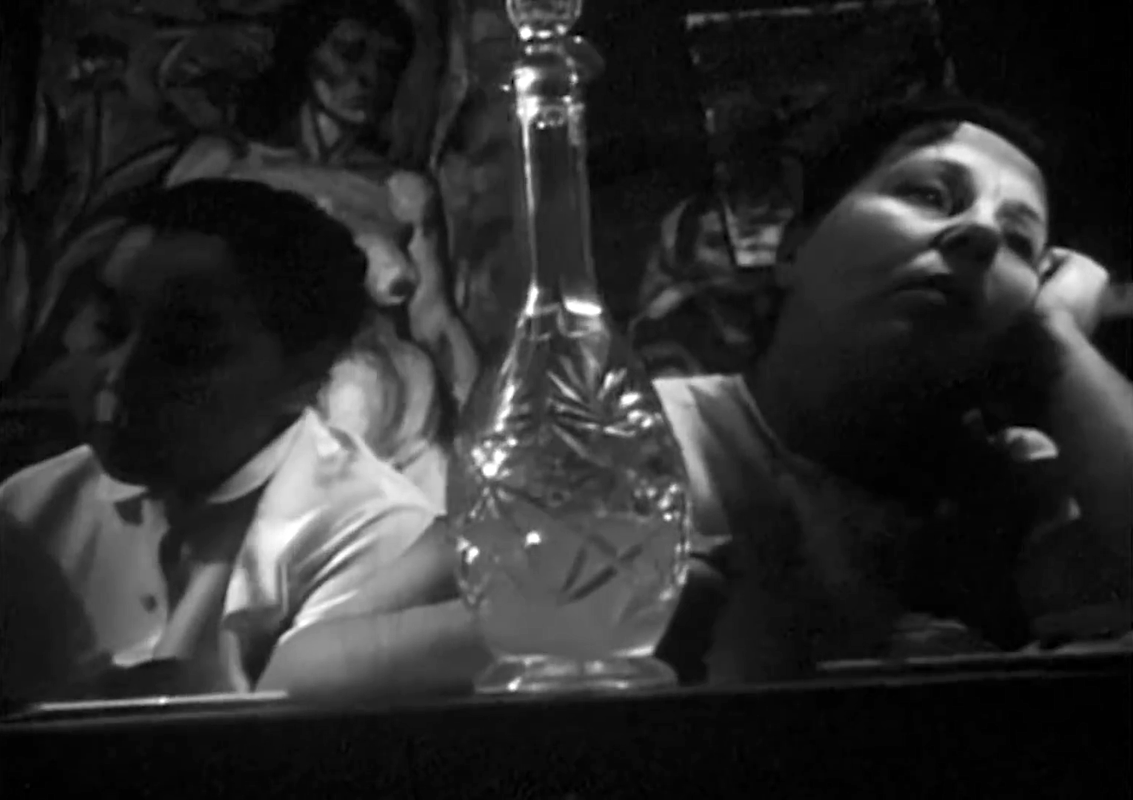Ко то тамо пева? [Ko to tamo peva / Who's Singin' Over There?] (Slobodan Šijan, 1980)
Apr
5
1941

A singing man plays the accordion, accompanied by a child smoking a cigarette. DP: Božidar 'Bota' Nikolić.
war
“I am the BBC as you can see, and here was the last news.”The Bed Sitting Room (Richard Lester, 1969)
Mar
22
National Goof-off Day

The BBC (Frank Thornton) bringing you the news (via). DP: David Watkin.
A truly silly film for National Goof-off Day (USA)
– The BBC
Amerikai anzix [American Torso] (Gábor Bódy, 1975)
Feb
12
Lincoln born

A soldier on a swing set, high up a tree. Other soldiers and civilians look on. Screenshot (and more information) via. DP: István Lugossy.
Yet another [American] Civil War, for Abraham Lincoln's birthday (1809).
Shot as fainted fragments* based on an Ambrose Bierce story, and outtakes from Karl Marx's diary, Amerikai anzix (litt. American Postcards) follows Hungarian-American cartographer Fiala, one of many of his countrymen fighting in the American Civil War.
*Using a technique described by Bódy as “light editing”, the footage looks worn and grimy.
Οι παράνομοι [Oi paranomoi / The Outlaws] (Nikos Koundouros, 1958)
Jan
26
Survival Day

One of the convicts and the woman. DP: Giovanni Varriano.
Convicts: a convict settlement in Sydney Cove on January 26, 1788 marks what is considered the founding of Australia.
War Machine (Duvet Brothers, 1984)
Jan
21
the passing of Orwell

A repurposed TV still of a battle ship billowing thick black smoke with the text WAR MACHINE superimposed over it.
A scratch video from 1984 on the date George Orwell died (1950). Date of production is either 84 or 85.
“You were so scared that you knocked out two tanks? Out of fright? Everybody hear? I wish everybody were so scared.”Баллада о солдате [Ballada o soldate / Ballad of a Soldier] (Grigoriy Chukhray, 1959)
Dec
19
Heroes' Day

Hero Alyosha Skvortsov (Vladimir Ivashov). DPs: Vladimir Nikolayev & Era Savelyeva.
A heroic act for (National) Heroes' Day.
– The General
“Whoever dies for the country hasn't lived in vain. I, on the contrary, will live for the country because I'm not that stupid.”Touche pas à la femme blanche [Don't Touch the White Woman!] (Marco Ferreri, 1974)
Nov
23
potato chips

Two white Frenchmen – in a University of Columbia and a CIA sweatshirt respectively – comment on the “period piece” they're in. CIA man (Paolo Villaggio) stuffs his face with potato chips. DP: Étienne Becker.
– George A. Custer
Pensione paura [Hotel Fear] (Francesco Barilli, 1978)
Oct
18
wartime soup

Rosa (Leonora Fani) prepares soup for two of the hotel guests. DP: Gualtiero Manozzi.
Восточный коридор [Vostochny Koridor / Eastern Corridor] (Valentin Vinogradov, 1967)
Jan
15

People eating, drinking, singing. DP: Yuri Marukhin.
飼育 [Shiiku / The Catch] (Nagisa Ōshima, 1961)
Dec
26
offerings

An altar with two rotund, smiling stone statues – possibly Jizō, a bowl of rice with chopsticks stuck into it, and a Japanese soldier's photograph. The position of the chopsticks tells us that the soldier has died. DP: Yoshitsugu Tonegawa.